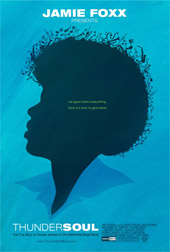NBCI Arts Initiative

Dear American Orchestras,
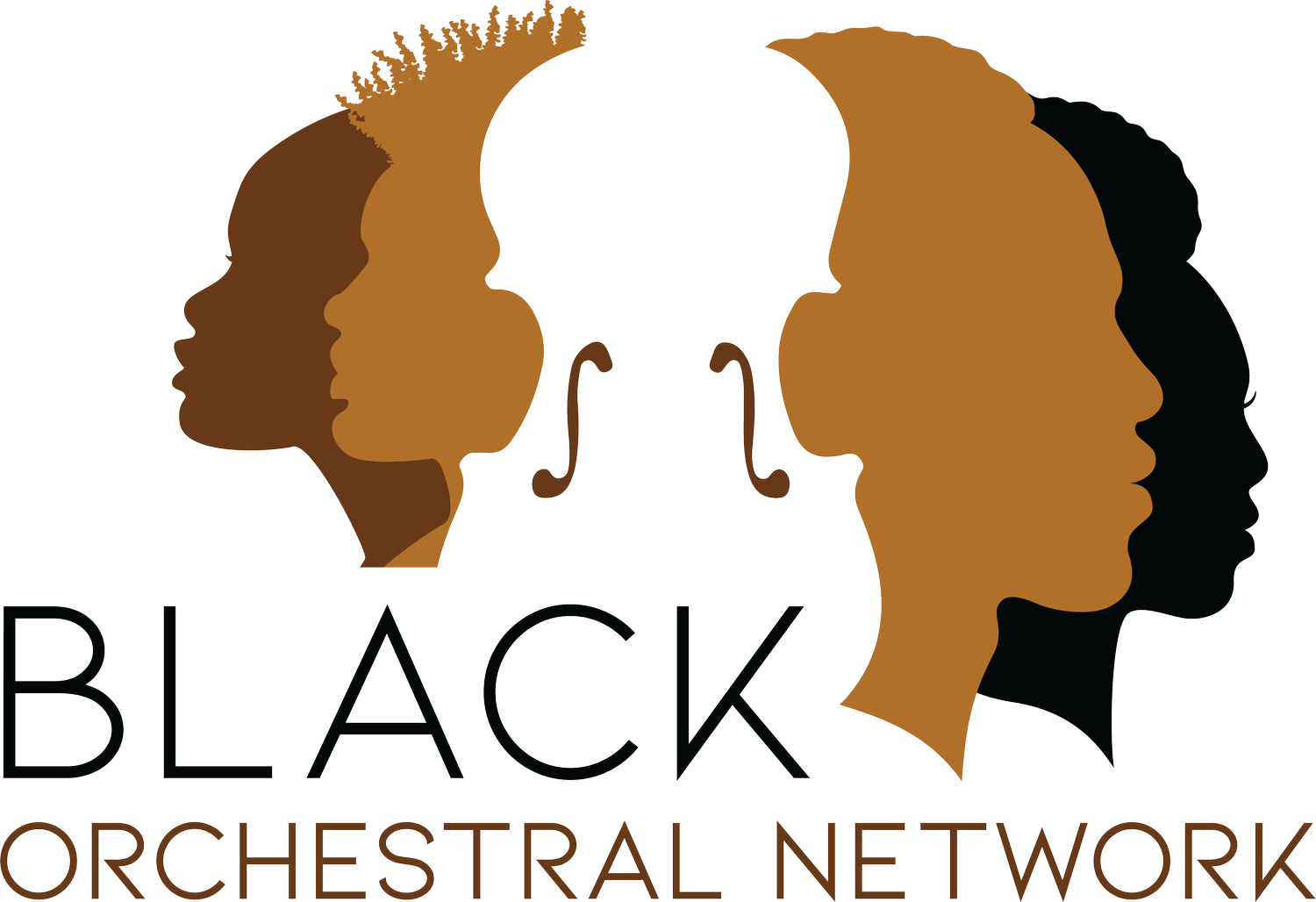 We are a community of Black orchestral artists. We grew up enmeshed in classical music, in our homes and families, through the nation's band and orchestra programs, conservatories and schools of music, and as anchors, creators, and leaders in American orchestras. We love and care about the American orchestral community: from its history and roots, to how it is felt and experienced, to its sustained success and vibrant role in American life.
We are a community of Black orchestral artists. We grew up enmeshed in classical music, in our homes and families, through the nation's band and orchestra programs, conservatories and schools of music, and as anchors, creators, and leaders in American orchestras. We love and care about the American orchestral community: from its history and roots, to how it is felt and experienced, to its sustained success and vibrant role in American life.
We are deeply concerned because the American orchestral community is not well.
This letter is a call to action to build a richer and more robust American orchestral community: one where musicians can share all aspects of their artistry and talents, where Black artists can see and center themselves in the history and future of the orchestral community, and can find reflections of themselves and their multiple strengths and complexities. We cannot call ourselves an American orchestral community if we are not inclusive of Black Americans and do not respect and acknowledge Black Americans’ contributions to American music and the orchestral community.
As Black musicians within this community, we have too often experienced significant barriers to inclusion, inequities in treatment and process, and indignities and devaluing of our musicianship and talents. The systems, structures, policies, and culture within our community, and the stunning indifference of many of our leaders and colleagues, have perpetuated and exacerbated our experiences of exclusion.
We are concerned about our ability to exist healthily in the American orchestral community, as well as the long-term viability of orchestras in American culture. How orchestras reflect and move forward is critically important to whether we – as Black orchestral artists – can thrive, belong, and contribute in ways so essential in this time.
We, the founding members of the Black Orchestral Network (BON), have initially charted and mapped a collective journey that will allow all of its members to experience equity and a sense of belonging. We are joined in this letter by current and former members of orchestras, who have answered BON’s call to join in. We are among those directly and acutely impacted by exclusionary and inequitable systems and policies, and racism which is both casual and cultural.
For decades we have worked in too much isolation, and at too great a cost to dismantle those systems and policies. We are ending that era now.
Together, we are writing the story of an American orchestral community that intends to be a transformational force in how we learn, play, gather, listen, and reveal ourselves to one another.
OUR HISTORY AND THE CURRENT MOMENT
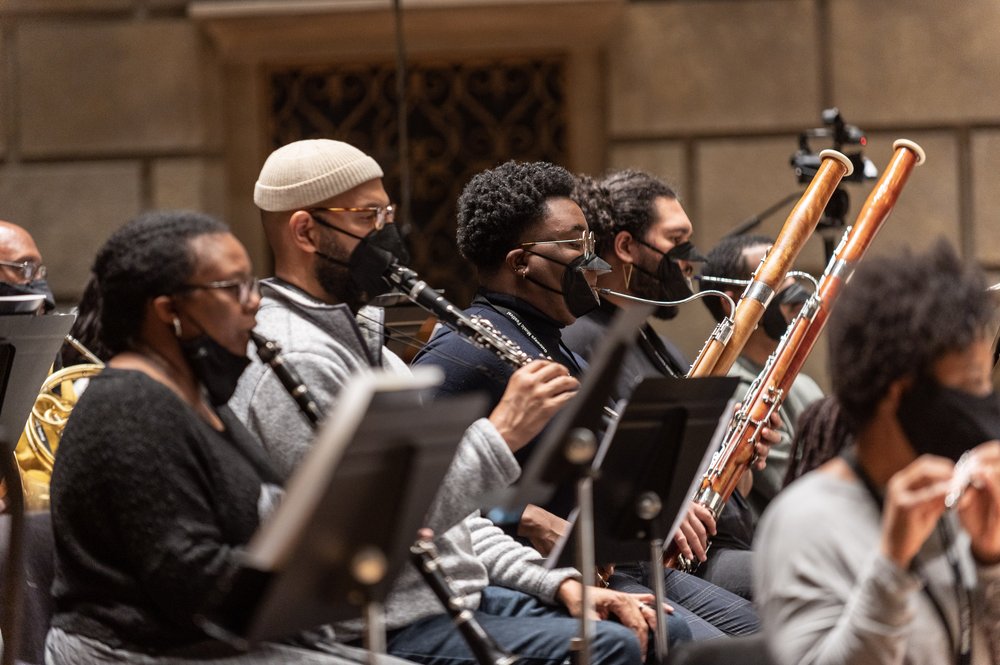
Our History and the Current Moment Inequity, exclusion, and segregation are deeply entrenched in American orchestras.Barriers to Black participation in the American orchestral community were historically sanctioned and systematized through formal policy. It wasn’t until the 1960s that the American Federation of Musicians and its local chapters extended full membership to Black musicians.
Significant barriers persist today. Current norms, structures, and processes within the American orchestral community far too often constrain the ability for Black musicians and audiences to fully participate and to feel welcome and included.
There is stunning and persistent underrepresentation of Black musicians in American orchestras. According to League of American Orchestras data, as of 2014, Black musicians made up less than 2% of all orchestral musicians — a figure that has barely budged over the prior decades. Because the great majority of American orchestras are not individually transparent with racial and ethnic data on their artists, we do not know the percentage of Black orchestral artists in our orchestras today. From our vantage point, however, we have seen little meaningful progress. Indeed, the most frequently cited innovation to increasing diversity in recent years, auditioning behind a screen, has rarely been fully blind or equitable. In our experience orchestras can and do go around these protocols designed to ensure fair opportunity, dropping the screen before final selections, or skipping pre-selected candidates straight to the finals.
In the aftermath of the murder of George Floyd and other incidents of police and community violence against Black Americans, organizations in the American orchestral community from The League of American Orchestras to the American Federation of Musicians issued statements in support of racial equity, inclusion, and justice. Two years later though, as it relates to the hiring and tenure of Black orchestral musicians in particular, far too little has been done.
We begin with the moral imperative to create and maintain a diverse, equitable, and inclusive orchestral community. But we can and must go further. Forming deep connections with our audience-communities that acknowledge and celebrate their diversity is essential for orchestras to be sustainable – artistically and financially – for the coming decades.
OUR CALL TO ACTION
We can do so much more to meet this moment. In many cases, the solutions are already known or clearly emerging. The challenges within the American orchestral community are big, but so are the opportunities to make American orchestras better and stronger, and to bring new people into the audience.
To address these challenges We call on
1. We Call On Orchestras - through their Boards, management, musicians, and music directors, to:
Hire Black Orchestral Musicians
Change the mindset. American orchestras need to do different to be different. Hiring Black orchestral musicians is an opportunity worth working for, not a problem to be solved. Boldly embrace new methods and tools for hiring. Keeping Black people, culture, and artists at arms-length has made - and is making - American orchestras poorer.
Remove barriers. Commit to equitable and inclusive tenure and audition guidelines, beginning with those recommended by the Sphinx Organization, with a specific plan to implement them by the conclusion of the 22-23 season.
Be accountable
Develop a plan for substantive change regarding opportunities and experiences for Black musicians by the end of the 2022-23 season. This means a written commitment to take specific actions towards specific targets – based on a timeline and dedicated resources – that will increase hiring and the receipt of tenure for Black orchestral musicians. The plan should be tied to and supported by an aesthetic and artistic vision that celebrates Black culture, creating an environment where Black musicians can share their talents in safe, affirming, and welcoming spaces.
Collect the data needed for accountable and transparent progress. This means applying best practices for accurately measuring current Black representation in the audition process and orchestras themselves; establishing ongoing measurement practices, including climate surveys and equity audits, to collect the data needed to understand progress against this baseline; and setting goals to increase Black representation and improve the experiences of Black musicians.
Support new talent and create opportunities
Strengthen career pathways for emerging Black musicians. Build links between orchestras and educational institutions that ensure the Black musicians who are training now have meaningful opportunities to be hired, and strengthen the future candidate pool through fellowships or other career development opportunities that lead to hiring.
2. We Call On Funders - both institutional and individual - to:
Invest in the long-term viability of organizations already committed to Black orchestral artistry.
Direct your dollars to orchestras that answer our call to action and publicly commit to act in the above ways.
Think Big about the possibilities for American orchestras in the context of our changing culture and society. Major gifts have always been an impetus for change. Support orchestras that are committed to the systemic change needed to make our industry truly inclusive.
3. We Call On Our Unions - particularly the American Federation of Musicians and related conferences (ICSOM, ROPA) – to honor the values of fair workplaces and stand in solidarity with Black members:
Support our call to hire Black orchestral musicians.
Address barriers to fair and equitable audition and tenure practices. Call on your orchestras to develop strategic plans for meaningful change regarding opportunities and experiences for Black musicians by the end of the 2022-23 season.
Include Black voices - artistic and/or legal – on bargaining teams.
Include measures of equity, diversity, inclusion, and belonging on ICSOM and ROPA surveys.
WHAT AMERICAN ORCHESTRAL COMMUNITY MEMBERS CAN DO
.jpg)
Raise Your Voice: If American orchestras are dear to you too – as an artist, audience member, educator, music lover – co-sign this letter by adding your name to the list in support of Black orchestral musicians who are calling on American orchestras for change.
Join Us: As we publish this letter, we know that those signatured represent only the fraction of our community we were able to reach, and we have only just begun the work to connect our community of practice. In the coming months, the Black Orchestral Network will be hosting a series of virtual convenings to increase the connection within the community of Black orchestral artists. We invite you – Black artists who study, practice, and perform orchestral music in any setting – to join us, connect with others, and help create a different future for our community of practice and American orchestras.
Toward Equity and Inclusion in our Community
Black musicians are at the core and the strength of the American orchestral community. The future of American classical music centers on orchestras that embrace a resonant, rooted, open, and just musical community where Black musicians thrive.
We invite you to join us in this journey towards a collective North Star: a community that extends across lines of difference with dignity, care for one another, and a sense of justice; and that honors our sustained and shared love of this music.
America is experiencing a transition and reckoning as it faces technological and cultural disruptions, the lasting mark of a pandemic that has shifted how we gather and engage with one another, and the ongoing desire for spaces where people can feel that they belong. These forces and energies also impact American orchestras.
Now is the time for orchestral artists to come together to build a community where we can experience joy and connection in music making: on stage, backstage, and with growing audiences.
To our orchestral leaders and colleagues, it’s time. Let’s go.
Sincerely,
Lucinda Ali-Landing — Violin, Chicago Sinfonietta
Jennifer Arnold* — Viola, Oregon Symphony (former)
Tony Baker — Trombone, Dallas Opera Orchestra
Andrew Brady — Principal Bassoon, Atlanta Symphony Orchestra
Dale Breidenthal — Violin, Los Angeles Philharmonic
Douglas Cardwell — Principal Timpani, Santa Fe Pro Musica
Emilio Carlo — Viola, Nashville Symphony (former)
Raynor Carroll — Co-Principal Percussion/Timpani, Los Angeles Philharmonic (retired)
Michael Casimir — Viola, Saint Louis Symphony Orchestra
Joseph Conyers — Assistant Principal Bass, Philadelphia Orchestra
Judy Dines — Flute, Houston Symphony
Joshua Elmore — Principal Bassoon, Fort Worth Symphony Orchestra
Langston Fitzgerald III — Trumpet, Baltimore Symphony (retired)
Andrew François — Viola, Saint Louis Symphony Orchestra
Jauvon Gilliam — Principal Timpani, National Symphony Orchestra
Joseph Hébert — Assistant Principal Cello, Oakland Symphony Orchestra
Billy Hunter — Principal Trumpet, Metropolitan Opera Orchestra
Ann Hobson Pilot — Principal Harp, Boston Symphony Orchestra (retired)*
James E. Jenkins — Principal Tuba, Jacksonville Symphony Orchestra
Geoffrey Johnson — Oboe, Detroit Symphony Orchestra (former)
Braizahn Jones — Associate Principal Bass, Oregon Symphony
Francisco Joubert — Bassoon, Louisville Orchestra
Dana Kelley — Viola, Orpheus Chamber Orchestra
Alexander Laing* — Principal Clarinet,The Phoenix Symphony
Chris Lee — Principal Tuba, National Arts Centre Orchestra
John Lofton — Bass Trombone, Los Angeles Philharmonic
Rodney Marsalis — Principal Trumpet, Chamber Orchestra of Philadelphia
Stephanie Matthews — Co-Founder and Violinist, Re-Collective Orchestra
Anthony McGill — Principal Clarinet, New York Philharmonic
Demarre McGill — Principal Flute, Seattle Symphony Orchestra
Garrett McQueen - President, TrillWerks Media; Bassoon, Knoxville Symphony (former)
Esther Mellon — Cello, Baltimore Symphony Orchestra
Ryan Murphy — Cello, San Antonio Symphony
Eliesha Nelson — Viola, The Cleveland Orchestra
David A. Norville* — Oboe, Sound Garden Wind Quintet
Adedeji Ogunfolu — Horn, Pacific Symphony
Rufus Olivier, Jr. — Principal Bassoon, San Francisco Ballet Orchestra; San Francisco Opera Orchestra
Joy Payton-Stevens* — Cello, Seattle Symphony Orchestra (former)
Barry Perkins — Trumpet, Pacific Symphony
Derek Reeves — Principal Viola, Fort Wayne Philharmonic
Patricia Reeves — FLute, Richmond Symphony Orchestra
Britton Riley — Cello, National Symphony Orchestra
Meredith Riley — Associate Principal Second Violin, Richmond Symphony Orchestra
Priscilla Rinehart — Horn, Broadway (current), Sarasota Orchestra (former)
Adam Sadberry — Acting Principal Flute, Memphis Symphony Orchestra
Michael Scott — Bassoon, Memphis Symphony Orchestra
Shea Scruggs* — Oboe, Cincinnati Symphony; San Francisco Opera; Baltimore Symphony (all former)
Sonora Slocum — Principal Flute, Milwaukee Symphony Orchestra
Herbert Smith — Trumpet, Rochester Philharmonic Orchestra
Weston Sprott* — Trombone, Metropolitan Opera Orchestra
Maya Stone — Bassoon, Huntsville Symphony Orchestra
Ebonee Thomas — Flute, The Dallas Opera
Whittney Thomas — Viola, Utah Symphony
Kenneth Thompkins — Principal Trombone, Detroit Symphony Orchestra
Titus Underwood* — Principal Oboe, Nashville Symphony
Robert Watt — Assistant Principal Horn, Los Angeles Philharmonic (retired)
Richard White — Principal Tuba, New Mexico Philharmonic
Alana Wiesing — Principal Timpani, Tucson Symphony Orchestra
Owen Young — Cello, Boston Symphony Orchestra
Afendi Yusuf — Principal Clarinet, The Cleveland Orchestra
*BON Founding Member
Archives
Maya Angelou: A Phenomenal Woman Passes On
The poet and civil rights activist has died at the age of 86.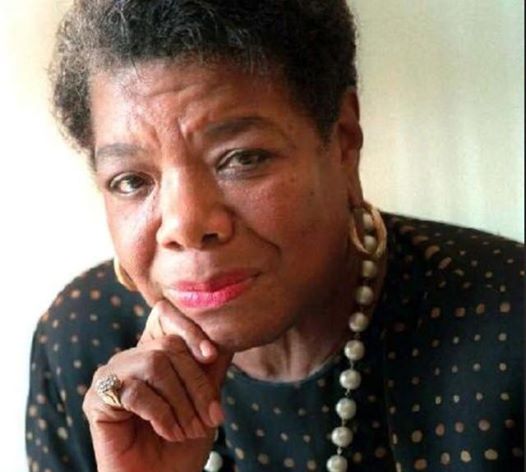
Other Current NBCI Arts Initiative Projects

With all of the negative images being painted of our people in the media, the NBCI endorses and supports a groundbreaking art exhibition of a father and son on their journey to teach, transform, and transcend.
NBCI Arts Initiative Press Releases
- NBCI Strongly Endorses "The Mountaintop" on Broadway .pdf [114kb]
This Signals NBCI's New Art Initiative. Rev Anthony Evans, President of NBCI says, "We have been searching for some time for an artistic expression the Black Church can put its arm around."
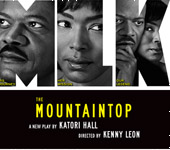
Below are films and onstage plays endorsed and supported by the National Black Church Initiative. Click here to see the Arts Initiative Archive.